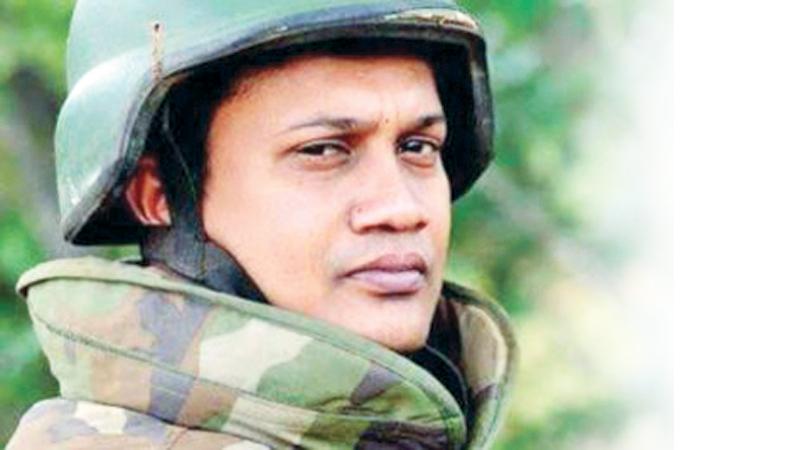
Ranil Wijayapala was a friend of all the worlds . He was a defence correspondent with a temperament of a peace dove. During his two decades-long career in journalism, the first half of which he spent covering the war and peace negotiations between the government and the LTTE, his jovial and faithful personality made him friends, and earned trust from the stakeholders of all sides to the conflict. Such friendships spilled into the personal life; friends of all shades and political disposition came him to share a secret, have a drink and seek help.
Ranil joined the Daily News as a trainee journalist in 1997. For the next two decades, he had a front row perch into the tumultuous unfolding of the country’s political, military and everyday life. He chronicled all that, taking a dispassionate view of things. Even during the high pressure and censor- prone years of the elevated armed conflict, Ranil strived to stick to the truth. He wrote a weekly defence column for the Sunday Observer, which was read by those who matter, who preyed on for small details in his column to have a peek into the corridors of power and military planning: political leaders, diplomats, spies and the Tigers themselves.
Being a journalist of the state-controlled flagship newspaper, Ranil was often pressurized to advance the government version of events. Yet the journalist in him rebelled. That rebelliousness brought to an abrupt end to his carefully cultivated relationship with the then all- powerful- Defence Secretary Gotabhaya Rajapaksa.
In his eventful career, Ranil was a purveyor of many secrets and witness to many incidents of extreme political and military significance. He carried with him those secrets to the grave. He never divulged them, though he could very well have sold to the highest bidder his trove of information.
He was one of the few journalists who enjoyed a virtually unrestricted access to the war zone during the final years of the conflict. He trekked to the battle front, lived there and, made lifelong friendships with soldiers and officers. He saw both the official versions of heroism and bitterness in everyday lives in the both sides of the conflict, and the utmost danger they diced with every minute, and how a life could be snuffed in a moment by a calculated act of brutality or by a simple mistake- or just by straying out of the cleared path.
His exposure to everyday realities of war hardened him as he fought his own battle against cancer several years later. In 2014, he went to see a doctor after a gastric problem that he suffered recurrently had reappeared. He was diagnosed with late stage cancer. Ensuing three years was difficult time for him, his family and loved ones. Ranil stood up to adversity like a few others would do. He continued to write on politics, security and trivia and handled the news desk of Sunday Observer until two months before his untimely death. He passed away on this day ( October 14) last year. He was 42. He is survived by his wife Sriyani and two young sons Dinidu and Uvindu.
My association with Ranil began soon after I joined Daily News in 2001 and was assigned to the news desk. Having already been in the trade for a couple of years by then, Ranil was a go- to- help guy as I navigated the intricacies of news journalism. In the ensuing years, we travelled through -out the North East, reporting for the Daily News and Sunday Observer. Ranil always offered quality company.
We remained friends forever, and Ranil’s demise left a hole in us, and made us circumspect the fragility of our lives. Ranil was a journalist who had the utmost practical experience, who during his whole career, worked under delicate, and often life-threatening conditions.
He could have taught the next generation of journalists not only about how to write the story, but also how to survive the adversity. His personal temperament of an easy going, down to earth and hard- working young man, that he maintained throughout his career is also in short supply in the contemporary journalism. He could have been a wonderful editor had destiny being kind to him. We all in Sri Lankan journalism are poorer without him.
- Ranga Jayasuriya
